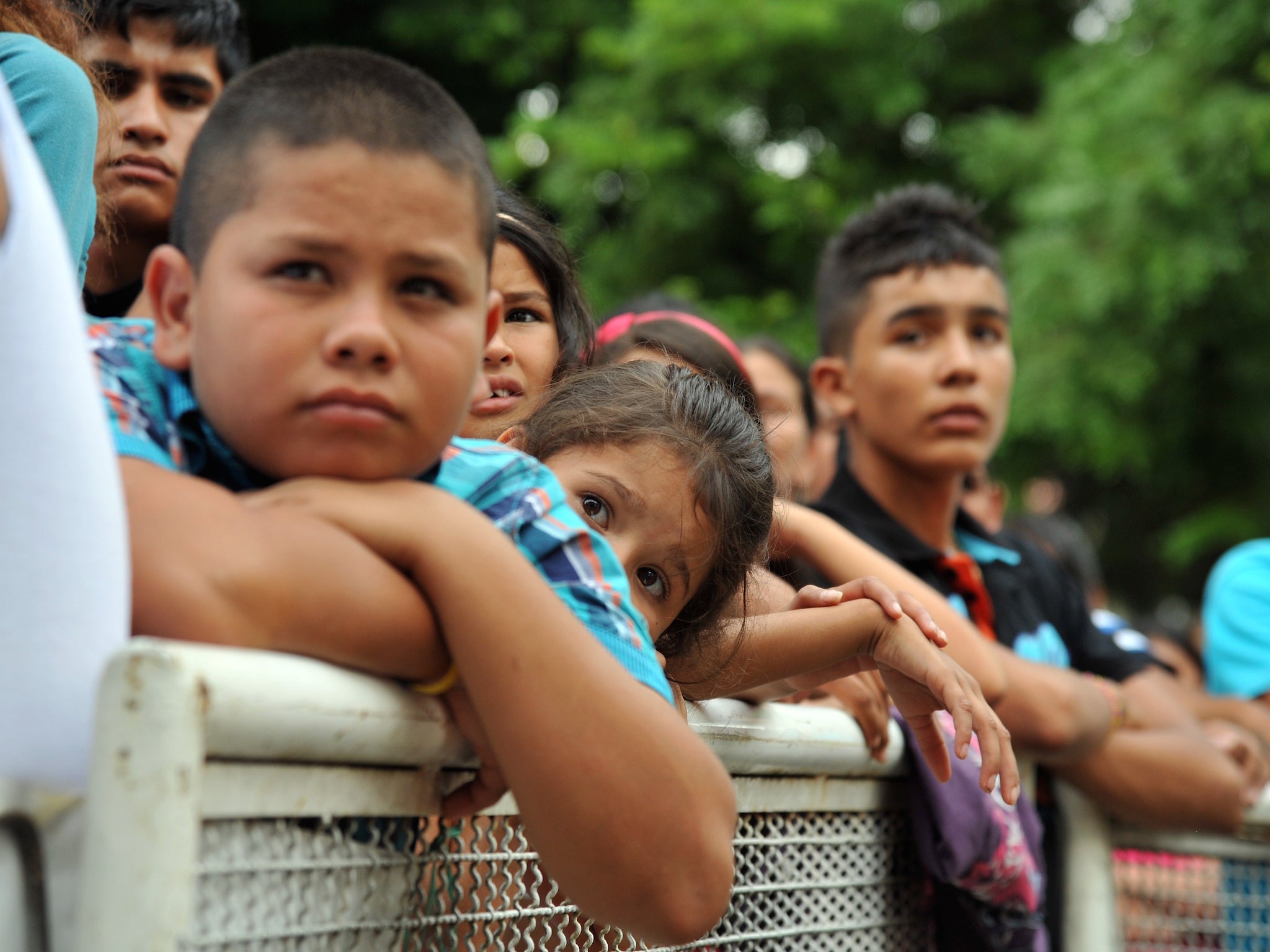Colombia's FARC rebels say they will end recruitment of child soldiers
Announcement is made during peace talks with government negotiators

The FARC rebels of Colombia have announced they are to end the recruitment of child soldiers – a declaration made amid peace talks with the government aimed at ending a five-decade civil war.
Negotiators from the left wing guerrillas, holding talks with government officials at a meeting in Cuba, said the age of recruitment was being raised to 17. In the past, the rebels have been accused of recruiting children as young as eight to bolster their ranks.
“The FARC has decided from now on not to incorporate minors under 17 years old into the ranks of the guerrillas and expresses the wish to soon reach a peace accord with social justice,” said Ivan Marquez, the rebels’ chief peace negotiator, according to the AFP news agency.
Mr Marquez also accused the Colombian armed forces of using children in its ongoing fight against the guerrillas and said it was essential they too ended the practice.
“The state and its military forces have carried out a policy of systematically using minors in the conflict. This must stop,” he told journalists in Havana at the close of the latest round of peace talks.
A protocol passed by the UN General Assembly in 2000 says that no-one under the age of 18 should be directly involved in armed conflict. The International Criminal Court has described the recruitment of anyone under the age of 15 as a war crime.
Charu Lata Hogg of the campaign group Child Soldiers International, told The Independent the announcement was a positive step. She added: "However since Colombia ratified the Optional Protocol to the Convention on the Rights of the Child on the involvement of children in armed conflict in 2005, FARC should ban recruitment of all under-18s.'
The civil war in Colombia dates from 1964 and has resulted in the deaths of at least 220,000 people, most of them civilians, according to a study by the National Centre for Historical Memory. Up to five million people have been displaced as a result of the slow-burning violence.
The peace talks, which opened in November 2012, have reached partial deals on several issues but have yet to yield a lasting peace.
During the conflict, the FARC rebels have repeatedly been accused by the government of using child soldiers. A 2013 report by the Unit for Justice and Peace, part of the government’s Prosecutor General’s Office, said the recruitment of child soldiers had been part of FARC’s policy since the early 1960s.
It quoted a memoir describing the early days of the FARC by Commander Jacobo Arenas – who was the rebels’ main political ideologue until his death in 1990 – wrote that “children from 10 years old can do useful jobs, like organising young revolutionaries”.
The Colombian government says it has rescued almost 6,000 former child soldiers in the last 15 years. It said most had been aged between 16 and 17 years old, but 30 per cent were boys and girls between the ages of 9 and 15.
The AFP said child soldiers have been used by most of the groups involved in the conflict, which has also drawn in other guerrilla movements, drug gangs and right-wing paramilitaries at various times.
The government’s chief peace negotiator, Humberto de la Calle, said the rebels move was a step in the right direction but called it insufficient because those aged 17, technically children in Colombia, would still be recruited.
Follow Andrew Buncombe on Twitter: @AndrewBuncombe
Subscribe to Independent Premium to bookmark this article
Want to bookmark your favourite articles and stories to read or reference later? Start your Independent Premium subscription today.

Join our commenting forum
Join thought-provoking conversations, follow other Independent readers and see their replies